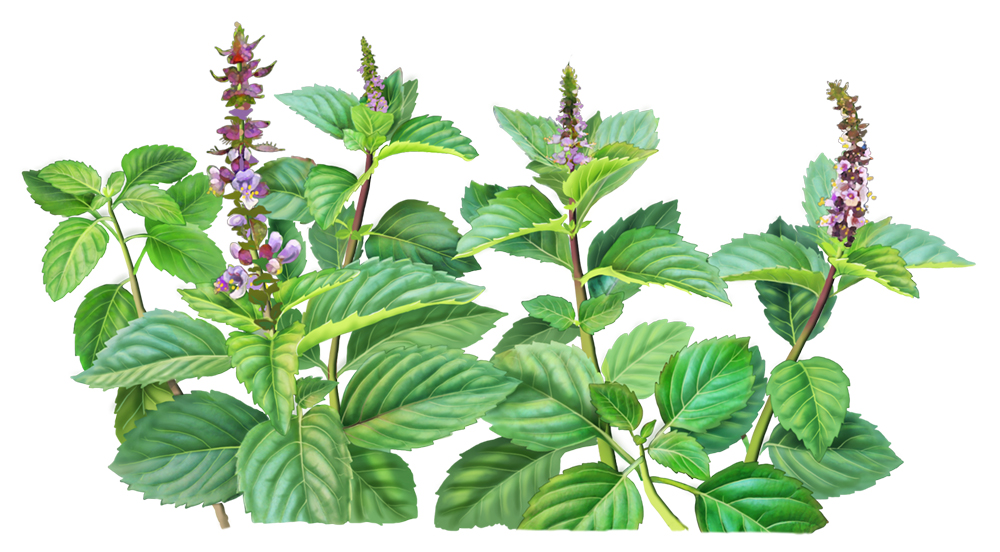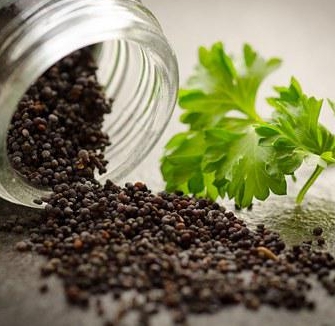Holy basil, Ocimum sanctum, is much like the sweet basil, Ocimum basilicum, you would find growing in your garden or plopped on your Caprese salad. Holy basil, however, is sacred.
Dating back hundreds of years, holy basil was originally known in India as tulsi, meaning “incomparable one”. This form of basil was commonly used in religious ceremonies and burials. It is also believed that holy basil will protect any home where it is grown. Tulsi is known to be the best herb for preparing the heart and mind for spiritual practices.
Chinese medicine adopted this sacred herb and further established its functional uses. Now, holy basil is known to treat stomach spasms, kidney conditions, promote an increase in blood circulation and aid in the treatment of snake and insect bites.
Due to it’s affinity for the brain and it’s uplifting and calming properties, holy basil is also frequently used to help alleviate the symptoms of depression and anxiety. When drank as a tea or taken as a tincture, it leaves you with a sense of calm and peace.
Recent experiments have demonstrated that holy basil may have a hypoglycemic (lowering blood sugar) effect on the consumer. The mechanism of how holy basil promotes such an effect is still not understood. Regardless, its benefits have been demonstrated as successful and promising. These research findings suggest that, with diet therapy and drug treatment, mild to moderate diabetes mellitus may be more controllable with sacred little plant.
Holy Basil! That’s awesome!

MATERIA MEDICA: HOLY BASIL
Latin Name: Ocimum sanctum
Family: Laminaceae (Mint Family)
Part used: Leaf
Energetics: Pungent, sweet, bitter, warm
Actions: Antidepressant, anti-inflammatory, antioxidant, antiseptic, antispasmodic, circulatory stimulant, diaphoretic, febrifuge, nervine, sedative and more!
Uses:
- Acne
- Asthma
- Anxiety
- Bronchitis
- Cancer
- Coughs
- Depression
- Drug overdose or withdrawl
- Headache
- Nausea
- Stomach ache
- Vomiting
Preparation and Dosage:
Tea – 1-2 teaspoons in hot water as often as desired.
Tincture – 30-90 drops directly in mouth or in water as often as desired.
Safety considerations:
If you have a known allergy or hypersensitivity to basil or plants in the Laminaceae family, avoid utilizing this herb.
In some animal studies, holy basil has demonstrated the ability to lower blood sugar. For this reason, individuals with blood sugar problems should use caution when consuming this herb.
Holy basil should also be avoided during pregnancy. Based upon traditional use, this herb can stimulate uterine contractions.


